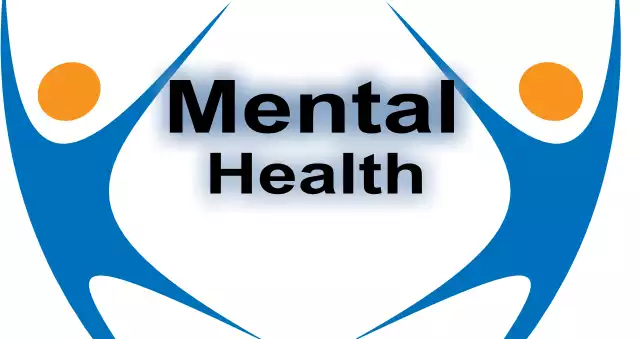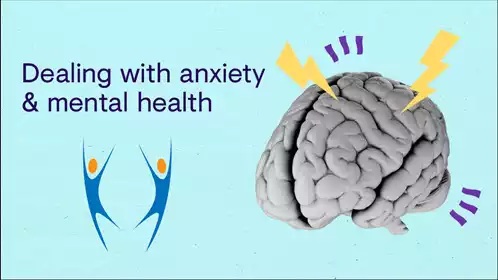Understanding Suicidal Thoughts: A Guide to Mental Health Struggles

If you or someone you know has ever experienced suicidal thoughts, you are not alone.
In fact, suicidal ideation is a common symptom of various mental health struggles.
It can be a frightening and overwhelming experience, but understanding the underlying causes and seeking proper help can make all the difference.
In this guide, you will gain a deeper understanding of suicidal thoughts, what causes them, and how to cope with them. You will also learn about the different mental health conditions that are often associated with suicidal ideation, including depression, anxiety, and bipolar disorder. Through this article, you will gain insight into the complexities of suicidal thoughts and how to approach them with empathy and understanding. Whether you are struggling with these thoughts yourself or trying to support someone who is, this guide will provide valuable information on how to navigate this difficult and sensitive topic. Mental health struggles can be challenging, but with the right knowledge and resources, you can learn to manage and overcome suicidal thoughts. Let’s explore this topic together and work towards promoting a deeper understanding of mental health.
Identify triggers for suicidal thoughts.
It is crucial to be aware of the triggers that may contribute to suicidal thoughts. These triggers can vary from person to person, but some common ones include experiencing intense emotional pain or distress, feeling hopeless or trapped, undergoing significant life changes or losses, struggling with mental health conditions like depression or anxiety, experiencing relationship problems or conflicts, engaging in substance abuse, or facing significant stressors such as financial difficulties or academic pressures. By recognizing and identifying these triggers, you can take proactive steps to address them and seek appropriate support and treatment. Remember, reaching out to mental health professionals, confiding in trusted individuals, and engaging in self-care practices are vital to coping with suicidal thoughts and ensuring your well-being.
Seek professional help for treatment.
When facing suicidal thoughts, it is essential to seek professional help for effective treatment. Mental health professionals, such as therapists, psychologists, or psychiatrists, have the knowledge and expertise to provide the necessary support and guidance during this challenging time. They can conduct a thorough assessment to understand the underlying causes of your suicidal thoughts and develop a personalized treatment plan tailored to your specific needs. Through therapy sessions, you can learn valuable coping strategies, develop healthier ways of thinking, and address any underlying mental health conditions, such as depression or anxiety, which may contribute to these thoughts. Additionally, professionals can provide medication management if necessary, helping to alleviate symptoms and provide stability. Remember, seeking professional help is a courageous step towards recovery and can provide the necessary tools to navigate and eventually overcome suicidal thoughts.
Build a support system for coping.
Building a support system is crucial for coping with suicidal thoughts and promoting overall mental well-being. Surrounding yourself with a network of understanding and compassionate individuals can provide validation, empathy, and a sense of belonging during difficult times. Reach out to trusted family members, friends, or mentors who can offer support and be there to listen without judgment. Consider joining support groups or online communities specifically tailored to individuals experiencing suicidal thoughts or mental health struggles. These platforms provide a safe space to share experiences, gain insights from others who have faced similar challenges, and offer mutual support. Engaging in regular communication with your support system can help alleviate feelings of isolation and provide a valuable outlet for expressing emotions and concerns. Remember, you are not alone in this journey, and building a strong support system can be a lifeline in times of distress.
Understand the link to depression.
It is essential to understand the link between suicidal thoughts and depression in order to effectively address and manage these struggles. Depression is a serious mental health condition that can significantly impact an individual’s thoughts, emotions, and overall functioning. It is characterized by persistent feelings of sadness, hopelessness, and a loss of interest in activities once enjoyed. Suicidal thoughts often occur as a result of the overwhelming despair and despair associated with depression. Seeking professional help is crucial to addressing underlying depression and developing a comprehensive treatment plan. Therapy, medication, and other evidence-based interventions can assist in managing depressive symptoms and reducing the frequency and intensity of suicidal thoughts. Remember that reaching out for support and engaging in appropriate treatment options are vital steps towards breaking free from the grip of depression and finding hope for a brighter future.
Don’t blame yourself for thoughts.
When dealing with suicidal thoughts, it is important to remember not to blame yourself for having these thoughts. Suicidal thoughts are often a symptom of underlying mental health struggles, such as depression or anxiety, and are not a reflection of personal weakness or failure. It is crucial to understand that these thoughts are not within your control and that seeking help and support is the first step towards finding relief. Remember, you are not alone in your struggles, and there are many resources available to assist you in navigating these difficult emotions. By reaching out to a mental health professional or a trusted individual, you can explore effective coping strategies and develop a personalized treatment plan to address your suicidal thoughts.
Develop healthy coping mechanisms.
In order to address and manage suicidal thoughts effectively, it is essential to develop healthy coping mechanisms. These coping mechanisms serve as valuable tools to help you navigate the difficult emotions and challenges that may arise. Engaging in regular physical exercise can be a powerful outlet for releasing pent-up emotions and promoting a sense of well-being. Additionally, practicing relaxation techniques such as deep breathing exercises or mindfulness meditation can help reduce stress and promote a sense of calm. Finding healthy ways to express your emotions, such as through journaling, art, or talking with a trusted friend or therapist, can also provide a sense of relief and release. Remember, it is important to be patient with yourself and to seek professional guidance to explore additional coping strategies that align with your individual needs and circumstances.
Find distractions to ease thoughts.
Engaging in distractions can be a helpful strategy to ease and manage suicidal thoughts. When you find yourself overwhelmed by negative thoughts and emotions, redirecting your focus towards activities that captivate your attention can provide a momentary reprieve. Consider engaging in hobbies or activities that you enjoy, such as reading a book, listening to music, or watching a movie. Physical activities like going for a walk, practicing yoga, or engaging in sports can also help divert your attention and release tension. It is important to choose distractions that are healthy and safe, avoiding behaviors that may be harmful or detrimental to your well-being. By finding healthy distractions, you can create moments of respite and give yourself time to regroup and regain a more balanced perspective. Remember, distractions are just one tool in your toolbox, and it is essential to seek professional help and support in order to address the underlying causes of your suicidal thoughts effectively.
Practice self-care and self-love.
Taking care of yourself and cultivating self-love are crucial aspects of managing suicidal thoughts and promoting overall mental well-being. It is important to prioritize self-care activities that nourish your mind, body, and soul. This can include practicing mindfulness and meditation to help calm racing thoughts and bring a sense of inner peace. Engaging in regular exercise and maintaining a balanced diet can also contribute to boosting your mood and energy levels. Creating a support system of trusted friends, family, or mental health professionals who can provide guidance and understanding is essential. Additionally, practice self-compassion by speaking to yourself with kindness and understanding, challenging negative self-talk, and celebrating even the smallest achievements. Remember, self-care and self-love are ongoing practices that require patience and commitment, but they can help build resilience and provide a foundation for a healthier and happier life.
Talk openly about your struggles.
It is essential to break the silence and talk openly about your struggles, especially when dealing with suicidal thoughts. Opening up to someone you trust can provide comfort, support, and a fresh perspective on your situation. Expressing your feelings and thoughts can help alleviate the burden and provide a sense of relief. It is crucial to find someone who will listen without judgment and offer empathy. This could be a close friend, family member, or a mental health professional. By sharing your struggles, you allow others to understand and offer the support you need. Remember, you are not alone, and seeking help is a sign of strength, not weakness. If you are a teenager facing suicidal thoughts, confiding in a trusted adult or reaching out to helplines and support organizations specifically designed for teenagers can provide the guidance and resources you need. Together, we can work towards finding effective strategies to manage and overcome these thoughts, and help you find hope and healing.
Know that it’s okay to ask for help.
When facing the weight of suicidal thoughts and navigating through the complexities of mental health struggles, it is crucial to recognize that it is okay to ask for help. Seeking support from a professional who specializes in treating suicidal thoughts and depression can provide you with the tools and guidance needed to overcome these challenges. A mental health professional can offer a safe and confidential space for you to express your thoughts and emotions, and they can assist in developing a personalized treatment plan tailored to your specific needs. Remember, reaching out for help is not a sign of weakness, but rather a courageous step towards healing and growth. You deserve to have your voice heard and to receive the support necessary for your well-being. Don’t hesitate to seek the assistance you need, as there are resources available to help you on your journey towards recovery.
You have now gained a deeper understanding of suicidal thoughts and the complex mental health struggles that individuals may face. It is important to remember that suicide is not a choice, but rather a result of deep pain and suffering. If you or someone you know is struggling with suicidal thoughts, it is crucial to seek help from a mental health professional. Remember, you are not alone and there is always hope for a better tomorrow. Take care of yourself and reach out for support when needed. You deserve to live a happy and fulfilling life.
FAQ
What are some common risk factors and warning signs of suicidal thoughts that individuals should be aware of?
You should be aware of several common risk factors and warning signs of suicidal thoughts. Risk factors can include a history of mental health disorders, substance abuse, previous suicide attempts, and a family history of suicide. Warning signs may include talking about wanting to die or feeling hopeless, withdrawing from social activities, giving away possessions, or displaying extreme mood swings. It is crucial to take any mention or indication of suicidal thoughts seriously and seek immediate help from a mental health professional or a helpline. Remember, you are not alone, and there are people who can support you through difficult times.
How can friends and family members best support someone who is experiencing suicidal thoughts?
To best support someone experiencing suicidal thoughts, you can start by actively listening to them without judgment or interruption. Let them know that you care and are there for them, offering your support and empathy. Encourage them to seek professional help and offer to help them find resources. Check in on them regularly and show genuine concern for their well-being. Avoid minimizing their feelings or offering solutions; instead, validate their emotions. Emphasize the importance of self-care and encourage them to engage in activities they enjoy. Remind them that they are not alone and that their feelings are valid.
Are there any specific mental health disorders or conditions that are more commonly associated with suicidal thoughts?
Yes, there are specific mental health disorders commonly associated with suicidal thoughts. Conditions such as major depressive disorder, bipolar disorder, post-traumatic stress disorder, and borderline personality disorder are often linked to an increased risk of suicidal ideation. These disorders can cause intense emotional pain, feelings of hopelessness, and difficulty with impulse control, which can contribute to thoughts of self-harm. It is important to seek help and support if you or someone you know is experiencing these thoughts, as there are effective treatments available.
What are some effective coping mechanisms or strategies for individuals who are struggling with suicidal thoughts?
When you’re struggling with suicidal thoughts, it’s important to remember that you are not alone. Reach out to someone you trust, like a friend or family member, and share how you’re feeling. They can provide support and help you find professional help. Engaging in activities that bring you joy and distract your mind, such as exercise or hobbies, can also be effective coping strategies. Additionally, consider joining a support group or seeking therapy to work through your emotions. Remember, there is hope and help available to you.
How can society as a whole work towards reducing the stigma surrounding mental health struggles and suicidal thoughts?
To reduce the stigma surrounding mental health struggles and suicidal thoughts, you can start by educating yourself about these issues and understanding that they are common and treatable. Use your voice to speak out against stigmatizing language and attitudes, and encourage open discussions about mental health in your community. Support organizations and initiatives that promote mental health awareness and provide resources for those in need. Show empathy and kindness to individuals who may be struggling, and offer them your support and understanding. By working together as a society, we can create a more compassionate and accepting environment for everyone.






